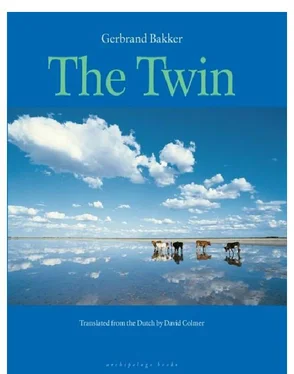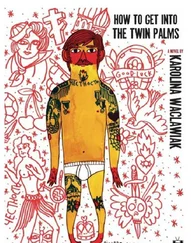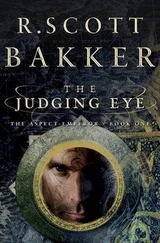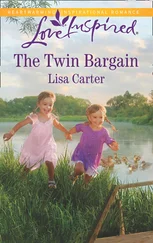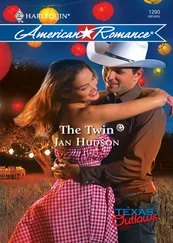I’ve put Father upstairs. I had to park him on a chair first to take the bed apart. He sat there like a calf that’s just a couple of minutes old, before it’s been licked clean: with a directionless, wobbly head and eyes that drift over things. I ripped off the blankets, sheets and undersheet, leaned the mattress and bed boards against the wall, and unscrewed the sides of the bed. I tried to breathe through my mouth as much as possible. I’d already cleared out the upstairs room — my room.
“What are you doing?” he asked.
“You’re moving,” I said.
“I want to stay here.”
“No.”
I let him keep the bed. One half of it has been cold for more than ten years now, but the unslept side is still crowned with a pillow. I screwed the bed back together in the upstairs room, facing the window. I put the legs up on blocks and remade it with clean sheets and two clean pillow-cases. After that I carried Father upstairs. When I picked him up off the chair he fixed his eyes on mine and kept them there until I was laying him in bed and our faces were almost touching.
“I can walk,” he said, only then.
“No you can’t.”
Through the window he saw things he hadn’t expected to see. “I’m up high,” he said.
“Yes, that’s so you can look out and see something other than just sky.”
Despite the new room and the clean sheets and pillowcases, it smelt musty, he smelt musty and moldy. I opened one of the two windows and used the hook to set it ajar. Outside it was quiet. A fresh chill was in the air and there were only a few crumpled leaves left on the topmost branches of the crooked ash in the front garden. Off in the distance I saw three cyclists riding along the dyke. If I had stepped aside he would have seen the three cyclists as well. I stayed put.
“Get the doctor,” Father said.
“No,” I replied, turning to walk out of the room.
Just before the door closed, he shouted, “Sheep!”
In his former bedroom there was a rectangle of dust on the floor, slightly smaller than the dimensions of the bed. I cleared out the room, putting the two chairs, the bedside cabinets and Mother’s dressing table in the living room. In a corner of the bedroom I wriggled two fingers in under the carpet. “Don’t glue it,” I heard Mother say an eternity ago as Father was about to go down on his knees with a jar of glue in his left hand and a brush in his right, our heads already spinning from the pungent fumes. “Don’t glue it, ten years from now I’ll want new carpets.” The underlay crumbled under my fingers. I rolled up the carpet and carried it through the milking parlor to the middle of the yard, where suddenly I didn’t know what to do with it. I let it drop, just where I was standing. Startled by the surprisingly loud bang, a few jackdaws flew up out of the trees that line the yard.
The bedroom floor was covered with sheets of hardboard, rough side up. After quickly vacuuming the room, I used a broad, flat brush to paint the hardboard with gray primer, without bothering to sand it first. While doing the last section, in front of the door, I noticed the sheep.
Now I’m in the kitchen, waiting for the paint to dry. Only then will I be able to get the gloomy painting of a flock of black sheep down off the wall. He wants to look at his sheep, so I will hammer a nail into the wall on one side of the window and hang the painting for him. The kitchen door is open and the bedroom door is open too. From where I am sitting, I can look past the dressing table and the two bedside cabinets at the painting on the wall, but it is so dark and discolored that I can’t make out any sheep at all, no matter how hard I try.
It’s raining and a strong wind has blown the last leaves off the ash. November is no longer quiet with a fresh chill in the air. My parents’ bedroom is my room now. I’ve painted the walls and ceiling white and given the hardboard sheets a second coat of primer. I’ve moved the chairs, Mother’s dressing table and the bedside cabinets upstairs. I put one bedside cabinet next to Father’s bed and stowed the rest in the spare room next to his bedroom: Henk’s room.
The cows have been inside for two days now. They’re restless during milking.
If the round hatch on top of the tanker had been open this morning, half the milk would have shot out like a geyser, that’s how hard the tanker driver braked to avoid the rolled-up carpet that was still lying in the middle of the yard. He was swearing quietly to himself when I came into the milking parlor. There are two tanker drivers, and this was the older one, the gruff one. More or less my age, I think. A few more years’ driving and he can retire.

Apart from the bed, my new bedroom is completely empty. I’m going to paint the woodwork: windows, door and skirting boards. I might do it the same color as the floor, but I’m not sure yet. I have a bluish gray in mind, the color of Lake IJssel on a summer’s day with ominous storm clouds in the distance.
In what must have been late July or early August, two young lads went by in canoes. That doesn’t happen often, the official canoeing routes don’t pass my farm. Only ambitious canoeists get this far. It was hot and they had taken off their shirts, the muscles in their arms and shoulders gleamed in the sunlight. I was standing at the side of the house, unseen, and watched them trying to cut each other off. Their paddles slapped against the yellow water lilies. The canoe in front turned sideways and got trapped with its nose against the bank of the canal. The lad glanced up. “Look at this farm,” he said to his friend, a redhead with freckles and sunburnt shoulders, “it’s timeless. It’s here on this road now, but it might just as well be 1967 or 1930.”
The redhead subjected my farm, the trees and the field the donkeys were grazing at the time to a careful appraisal. I pricked up my ears. “Yes,” he said after a long while, “those donkeys are old-fashioned, all right.”
His friend backed his canoe away from the bank and turned it in the right direction. He said something in reply, something I couldn’t make out because a redshank had started to kick up a fuss. A late redshank: most of them are gone by the end of July. The redhead set off after him slowly, still staring at my two donkeys. I was stuck with nowhere to go, there was nothing I could possibly be working on around that side of the house. I stood there motionless and held my breath.
He saw me. I thought he was going to say something to the other lad, his lips parted and he turned his head, but he didn’t say a word. He looked and left me unseen by his friend. A little later they turned into Opperwoud Canal and the yellow water lilies drifted back together. I walked up on to the road to watch them paddle off. After a few minutes I could no longer hear their voices. I tried to see my farm through their eyes. “1967,” I said quietly, shaking my head. Why that particular year? One of the boys had named the year, the other, the redhead with freckles and burnt shoulders, had seen it. It was very hot that day, mid-afternoon, almost time to bring in the cows. My legs felt unexpectedly heavy and the afternoon was empty and lifeless.
Dragging a grandfather clock up a staircase is a hellish job. I use rugs, pieces of foam rubber and long, smooth planks. Everything inside the case pings and rattles. The ticking of the clock drove me mad, but I didn’t want to stop it every night. Halfway up I have to rest for a few minutes. It might drive him mad as well, but then of course he’ll have his painted sheep to calm him down again.
Читать дальше
